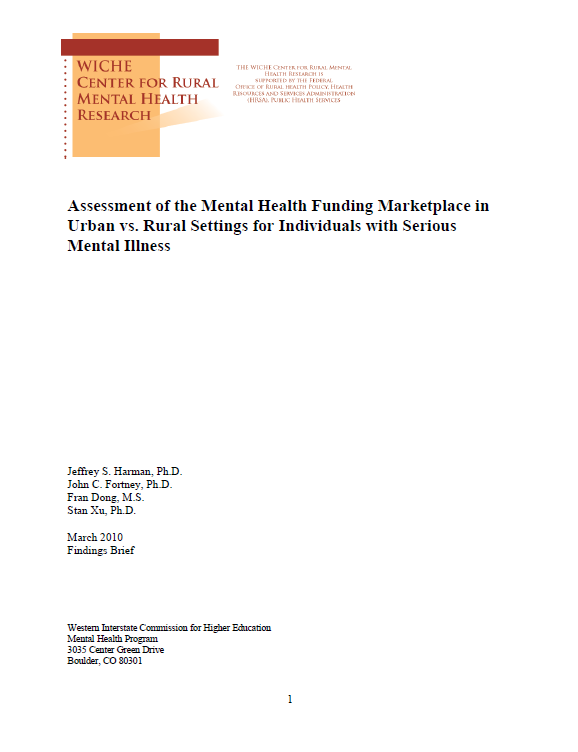Summary
The most recent data from the National Comorbidity Study Replication (NCS-R) indicate that rural individuals with MH problems are significantly less likely to receive any MH care for their disorder than individuals in urban and suburban areas. The NCS-R also reports that of those patients who do receive mental health care, rural patients are significantly more likely to receive general medical care only and significantly less likely to receive specialty mental health care. Because patients receiving care in the specialty mental health sector are substantially more likely to receive adequate care (45.4%) than patients receiving care in the general medical sector only (12.7%), this indicates that rural individuals are receiving poorer quality care. Reduced access to MH care in rural areas are undoubtedly due to an inadequate supply of MH specialists. Additionally, primary care (PC) providers, who provide the vast majority of MH care to persons living in rural areas, do not have the training necessary to provide evidence based psychotherapy, thus eliminating one of the primary treatment modalities for people with MH problems. The lack of MH specialists in rural areas is likely due to inadequate incentives for these specialists to practice in rural areas. Furthermore, previous research has shown that health plans are more likely to rely on demand side cost containment strategies for rural enrollees than supply side strategies. This may result in rural residents paying more out-of-pocket for mental health services. Additionally, the source of funding for MH services may differ depending on the type of mental illness.
Details
- Year Published : 2010
- Month Published : February
- Media Type : pdf
